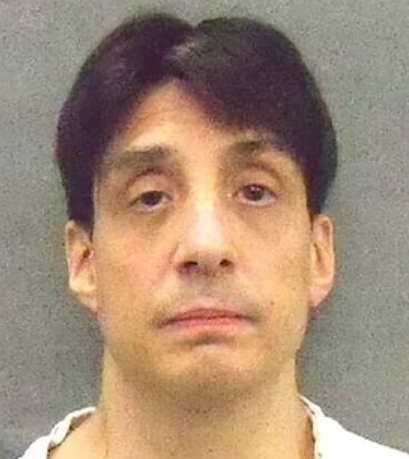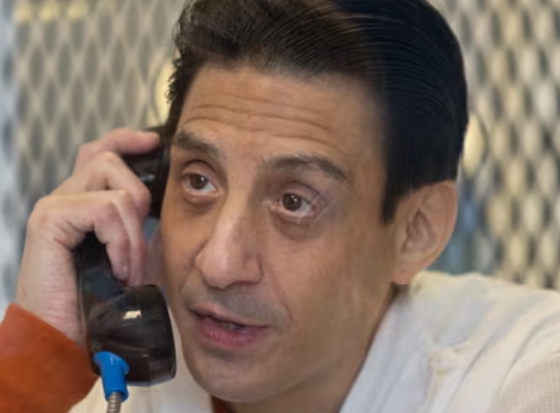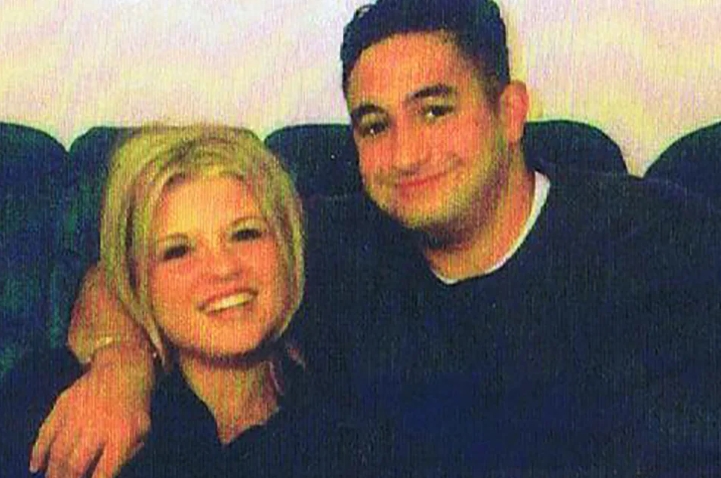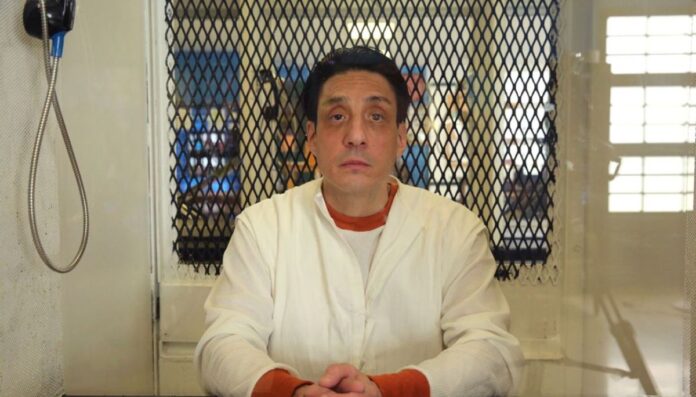Ivan Cantu was accused of fatally shooting his cousin, James Mosqueda, 27, and Mosqueda’s 22-year-old girlfriend, Amy Kitchen, in November 2000. Despite maintaining his innocence, he was executed on Feb 28, 2024.
Ivan Cantu was put to death by lethal injection on February 28, 2024, for the murders of his cousin, James Mosqueda, and James’s fiancée, Amy Kitchen, in 2000.
Cantu, 50, was declared dead at 6:47 pm at the state penitentiary in Huntsville, Texas. For more than two decades, he steadfastly maintained his innocence, insisting that he was framed by a rival drug dealer.

According to prosecutors, Cantu allegedly murdered his cousin and his girlfriend in November 2000 during an attempted robbery of cocaine, marijuana, and cash from Mosqueda’s residence in North Dallas.
The involvement of Kardashian and other celebrities propelled his case to national prominence.
She took to Twitter to express that prosecutor offices are starting to understand the multitude of mistakes in convictions, concluding with an urgent plea to save Ivan Cantu.
Read More: Who Is Hannah Jones, Howard Adrian Ashleman Wife? Dateline NBC The Bridge James Chambers Murder Case
Ivan Cantu Wiki & Family
Born in 1973, Ivan Cantu’s hometown was Dallas, Texas, USA, where he spent his early childhood.
He was raised by Sylvia Cantu, a single mother balancing work as a waitress and a housekeeper, and he was the youngest of her four children.
His childhood was overshadowed by poverty, abuse, and neglect, making it difficult and troubled.
Domestic violence and drug use were frequent occurrences that he witnessed in his household. At the age of six, he experienced s*xual molestation by a relative.

He faced learning disabilities and emotional struggles, ultimately receiving diagnoses of attention deficit hyperactivity disorder (ADHD) and bipolar disorder.
Dropping out of school in the ninth grade, he initiated drug and alcohol use at a young age. His involvement extended to petty crimes like burglary, theft, and assault.
He found himself in police custody on multiple occasions, enduring stays in both juvenile detention centers and prison.
He shared a close bond with his cousin, James Mosqueda, who was more like a brother to him.
He held jobs as a landscaper and construction worker, alongside selling and using illegal drugs like cocaine and marijuana.
While expressing a desire to change his life and pursue music, he failed to achieve the goals he set for himself.
Additionally, he fathered a son named Ivan Jr. with his first girlfriend, but he lacked a stable relationship with either his son or his son’s mother.
His second girlfriend was Amy Boettcher, who eventually became his fiancée.
According to her, they crossed paths in 1998 and decided to move in together by 2000. Amy described Ivab as affectionate and attentive, noting that he proposed to her with a ring purchased from a pawn shop.
Details About The Convict of Double Murder – Was Ivan Cantu Innocent?
The state of Texas on February 28 Wednesday executed death row inmate Ivan Cantu, who was convicted and sentenced to death for the 2000 murders of his cousin and his cousin’s fiancée though he insisted until his death that he was innocent.
With his last words, he maintained he was innocent of the murders of James Mosqueda, his cousin, and Amy Kitchen, a nursing student. He said:
I’d like to address the Kitchens and Mosqueda families. I want you to know that I never killed James and Amy,” Cantu said. “And if I did, if I knew who did, you would’ve been the first to know any information I would’ve had that would’ve helped to bring justice to James and Amy.
The bodies of James Mosqueda and Amy Kitchen, shot multiple times in the head, were uncovered in their Dallas apartment on November 4, 2000.

James Mosqueda, his cousin, was a local drug dealer in debt to Carlos Hernandez. Amy Kitchen, Mosqueda’s fiancée, was a nursing student.
Prosecutors claim Cantu murdered them during a failed robbery, taking Mosqueda’s car, jewelry, and money. They also accused him of having an affair with Kitchen and being envious of her bond with Mosqueda.
The prosecution’s case heavily leaned on two pivotal pieces of evidence: the testimony of Cantu’s fiancée, Amy Boettcher, and the forensic scrutiny of the blood-soaked clothing and the gun confiscated from him.
Boettcher, who had a history of drug use and mental illness, initially informed the police that she and Ivan had departed for Arkansas on a prearranged trip hours before the bodies were found.
However, after the police uncovered the bloody clothes in Cantu’s trash can and the gun at their friend’s place, she altered her narrative and directly accused Ivan of the murders.
She also testified that he confessed to murdering Mosqueda and Kitchen and forced her to assist in disposing of the evidence.
Boettcher’s testimony seemed to align with the forensic evidence presented. The blood-stained clothes matched the victims’ DNA, and Cantu’s fingerprint was identified on the gun’s magazine. Moreover, a ballistics expert confirmed that the bullets retrieved from the crime scene were consistent with the weapon.
On the contrary, the defense asserted Ivan’s innocence, claiming he was framed by Hernandez, the rival drug dealer who had a motive to harm Mosqueda. They brought attention to the inconsistencies in Boettcher’s statements, implying possible coercion and manipulation by the police.
The defense brought forth testimony from Ivan’s family and close friends, portraying him as a compassionate individual who had provided support during difficult times. Additionally, they presented testimony from Sister Helen Prejean, a Catholic nun who had befriended Ivan and advocated for his life.
Despite the defense’s efforts, the jury remained unconvinced and pronounced Cantu guilty of capital murder. In the sentencing phase, the prosecution introduced evidence of Ivan’s previous criminal record, which encompassed convictions for burglary, theft, and assault.
The jury decided that Cantu should receive the death penalty and sentenced him to death.
You Might Be Interested In Rebecca Grossman Wikipedia: Did She Murder 2 Children?

